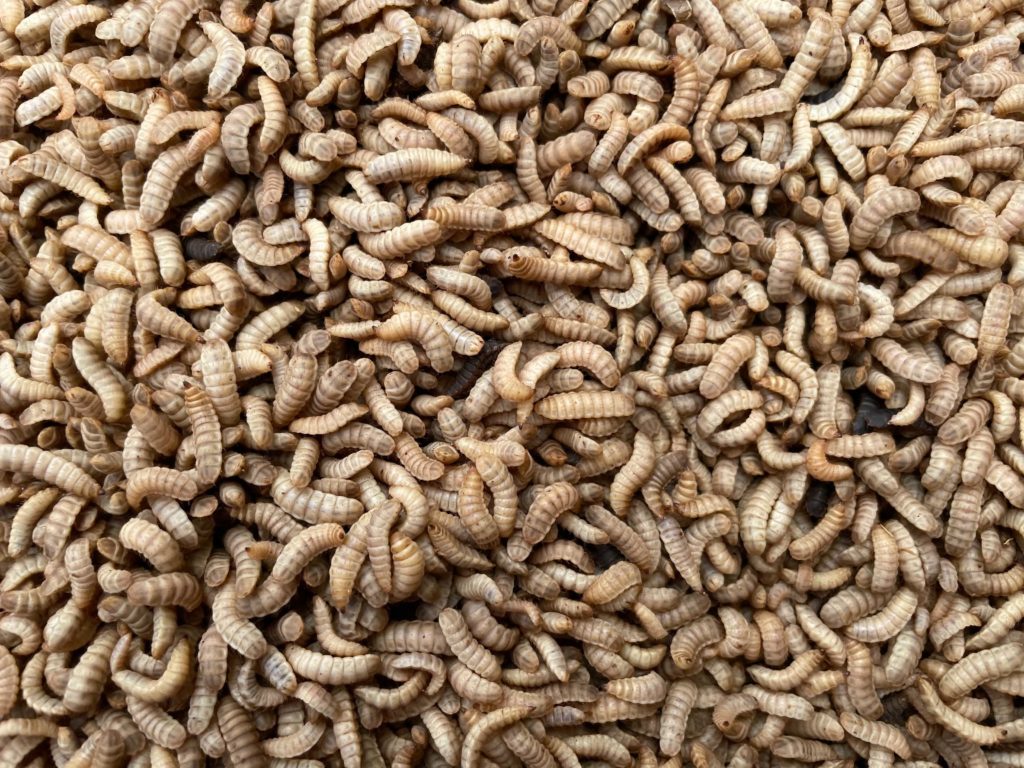In recent years, a growing trend among pet chicken keepers in Australia has emerged, involving the adoption of black soldier fly larvae as a primary food source for their feathered friends. These larvae are reared on organic waste, providing an environmentally friendly and sustainable alternative to traditional chicken feed. This article aims to explore the reasons why this trend is beneficial for both the chickens’ well-being and the planet’s health.
—
Promoting Sustainable Food Sources
Feeding live black soldier fly larvae to pet chickens is a positive step towards reducing the environmental impact of animal husbandry. These larvae can be reared on various types of organic waste, including food scraps and agricultural byproducts. By diverting this waste from landfills and transforming it into nutritious larvae, pet chicken keepers actively contribute to waste reduction efforts. Additionally, unlike conventional chicken feed, the larvae do not require vast amounts of land, water, or energy to produce, making them a more sustainable option.
Enhanced Nutrition and Health Benefits
Black soldier fly larvae are highly nutritious and provide a well-balanced diet for pet chickens. They are rich in protein, amino acids, and essential fatty acids, contributing to the overall health and vitality of the birds. Moreover, the larvae contain calcium, which is vital for eggshell formation, strengthening the hens’ reproductive health. By offering chickens a diverse diet that includes live larvae, pet owners can ensure their birds receive the necessary nutrients for optimal growth, feather quality, and immune function.
Reduced Environmental Footprint
Feeding pet chickens with black soldier fly larvae reared on organic waste significantly reduces the overall environmental footprint associated with traditional chicken feed production. Conventional feed production often relies on resource-intensive agricultural practices, including land clearing, water consumption, and chemical fertilisers. By contrast, using larvae derived from organic waste minimises these negative impacts, promoting a more sustainable approach to animal nutrition.
More on the topic: Insect Farming: The Sustainable Future of Food Production with FlyFarm
Closing the Food Waste Loop
The adoption of black soldier fly larvae as a primary food source for chickens creates a closed-loop system that addresses the issue of food waste. By converting organic waste into larvae, which are then consumed by chickens, the cycle of food production and consumption is completed in a sustainable manner. This process not only reduces the strain on landfill space but also minimises greenhouse gas emissions associated with the decomposition of organic waste. Moreover, by reducing the demand for traditional chicken feed ingredients, this trend indirectly contributes to the conservation of natural resources.
Conclusion
Feeding pet chickens with live black soldier fly larvae reared on organic waste offers numerous benefits, promoting sustainability, enhancing nutrition, and closing the food waste loop. It is a win-win for pet chicken keepers and the planet.
Source: Larvalicious

















